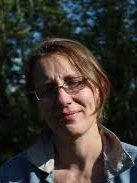Miriam Dolan
GP Partner, Rural Medicine lead & Medical Educationalist
The workforce crisis created opportunities too
Miriam
Many years ago, I fell in love with a famer from Fermanagh. We met when I was touring Donegal as a third-year med student. Being from Amsterdam, dreaming of an academic career in global medicine while living alongside the canals of my free-spirited city, my friends and family declared me mad when I announced a few years later that I was moving to the most rural part of Northern Ireland to follow my heart. Understandably they were advising me against. We grew up with images of conflict and social unrest. We viewed Belfast on a par with Beirut and Northern Ireland as a place where peace was unimageable.
In August 1998 I was working as a SHO in the Tyrone County Hospital when the Omagh bomb went off. My worst fear came true. I practically packed my bags to return home. Looking back, I would say it was mainly the people that kept me here. Everybody had been so welcoming. I was also enjoying my work, was ‘discovering’ ‘the rural way of life’ and was excited about my change in career choice to General Practice. I was fortunate to become a partner in a progressive, outward looking practice in Lisnaskea in 2001. I got heavily involved in under- and postgraduate education and was able to remotely (due to a good broadband connection!) keep studying and obtain various postgraduate master’s degrees, for example in Public Health and Clinical education.
During the last number of years our practice has gone through major change. A GP workforce crisis made us merge with various small rural practices which was tough for all involved. But I am glad to say we are now getting at the other side. The crisis created opportunities too. We fast-tracked new technologies like virtual group consulting and e-consulting and are working hard to extend and integrate a multi-disciplinary team. As GPs we are taking on a new role of managing and mentoring an extending primary care multi-disciplinary team whose members are substituting and supplementing tasks and services traditionally provided by doctors. Our extended MDT team is based on real collaborative working and streamlining of care. I feel I was able to contribute positively to this change due to my interests in Public health and interprofessional learning.
Rural medicine and rural living has so much more to offer than ‘surviving the storm’. I think it is such a shame that ‘rural generalism’ is at times ‘hidden’ (minimal to no exposure to rural GP as undergraduate medical students) or perceived and portraited as ‘undesirable’. When asking a group of students about the pros of working as a rural GP I was shocked they struggled to get beyond ‘green fields’ and ‘fresh air’. Yes, we have that, but what about ‘professionally and academically challenging’? A good work/life balance? Working in an extended, collaborating primary care team serving your local population based on the principles of population-based medicine? It is all of the latter that continues to stimulate me with a focus on opportunities instead of obstacles. With remote working now a reality, rural generalism could be even more attractive to students and trainees with academia and education being even more part of the rural portfolio.
When at home I look after the animals on our farm (something I wouldn’t have dreamt of as a student biking around Amsterdam), grow my own veg and fruit or help out on our Social farm. Social farming is a totally new way of how we as a society can deliver health and social care. On our farm we work alongside people with life challenges, eg. lack of opportunities due to an intellectual disability or social exclusion due to mental ill health. It is a real rural-asset-based way of creating social inclusion.
As a ‘convert’ rural practitioner I am active in promoting rural practice. I sit on the RCGP NI council as the rural rep and link in with rural colleagues on the Rural Forum (https://www.rcgp.org.uk/rcgp-near-you/faculties/rural-forum.aspx) and EURIPA (https://euripa.woncaeurope.org/) through which I have met so many nice colleagues and have been involved in setting up and organising workshops and conferences.
